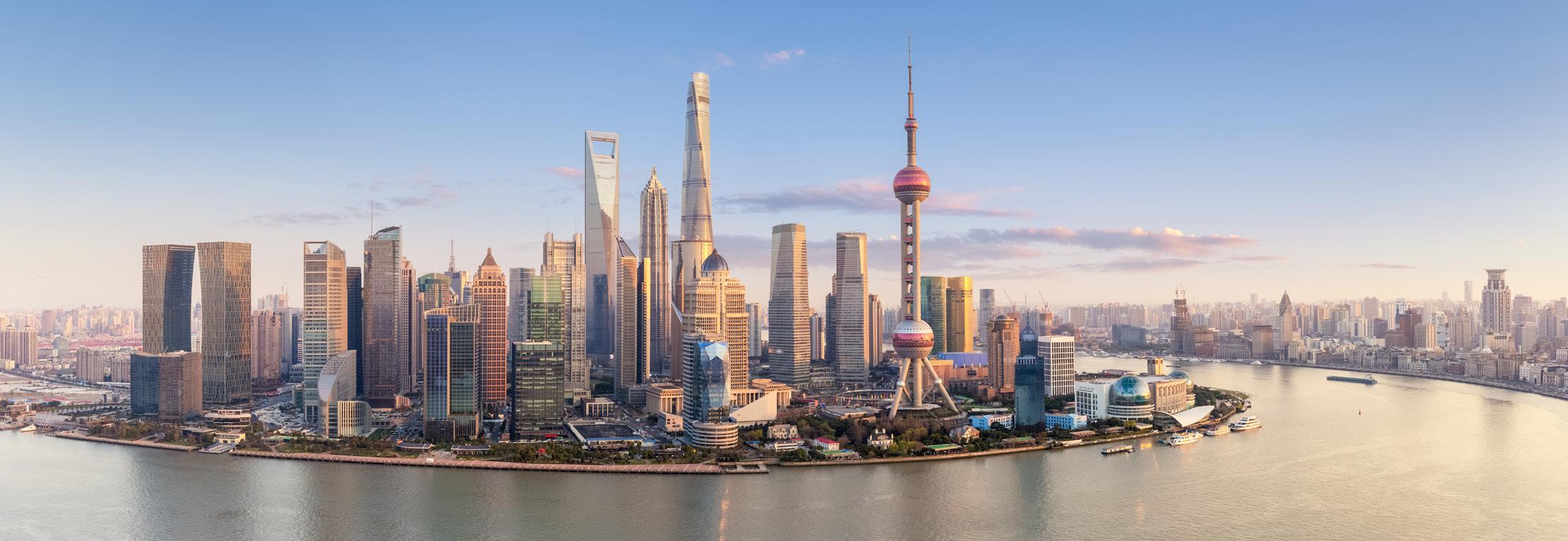
4 minute read
CHINA vs INDIA What you need to know before you invest
By James Crux Funds and Investment Trusts Editor

China’s abrupt Covid U-turn has created the best opportunity in years for Asia and emerging market equities to outperform developed markets on a sustainable basis. It is likely to be one of the select few major economies where growth could accelerate in 2023 as China, where equity market valuations remain undemanding, enjoys a reopening recovery like much of the rest of the world witnessed in 2022.
And yet it is India that remains the best structural domestic demand story in the Asia and emerging market universe. India’s growth trajectory is forecast to outpace nearly all emerging and developed economies in 2023, with an International Monetary Fund estimate of 6.1% growth versus 5.2% for China, but investors must pay up to access this expansion, since inflows from domestic retail and institutional investors have resulted higher valuations versus other emerging markets.
Given this tantalising set-up, which of these two emerging market giants offers adventurous investors the superior risk/reward profile in 2023 and beyond? In this article, we lay out the opportunities and threats in both markets with input from investment experts who run money in these vast economies on a day-to-day basis.
China
Why The Reopening Excites
Deeply out-of-favour with investors in recent years due to concerns around its property sector and the continuation of Xi Jinping’s draconian ‘zero-covid’ policy, stock markets cheered after the policy was relaxed in December 2022. The exit from zero-Covid after three years of strict curbs is expected to be the catalyst for a year of cyclical recovery in China, which experienced 3% GDP growth in 2022, its second lowest level of annual growth since the 1970s.
Chinese equity markets have rallied strongly since the authorities’ abrupt abandonment of zero-covid – the MSCI China index is up 50% since the trough in October last year – with support for the property sector, the pro-growth policy shift signalled at the annual Central Economic Work Conference in December and a more benign regulatory environment for large internet companies also lifting sentiment.
Opportunities In Year Of The Rabbit
22 January officially marked Chinese New Year, the Year of the Rabbit, a symbol of longevity, peace and prosperity, and managers of dedicated China funds are full of optimism at this early stage of 2023.
Dale Nicholls, manager of Fidelity China Special Situations (FCSS), says the reversal in the zero-Covid policy has played out faster than he expected. He adds: ‘This focus on restoring confidence and reviving growth underpins an increasingly positive outlook for China.’ decline in energy prices from their peak, a stable domestic supply of agricultural products and commodities sourced from Russia.
Singapore-based Chetan Sehgal, the lead manager of Templeton Emerging Markets Investment Trust (TEM) which invests in both China and India, expects China to follow a similar pattern of post-Covid consumption to other emerging markets.
Sehgal argues corporate earnings should deliver, ‘eventually’, though the near-term outlook remains weak as companies struggle to scale up production and distribution in the face of the pandemic. He says the real estate sector outlook is lacklustre, and credit demand may take time to recover, which is likely to act as a drag on the financial sector. Nevertheless, he expects earnings to recover in the second half of the year as supply chain issues are addressed and the real estate sector stabilises.
An estimated RMB 6.6 trillion in excess savings has been built up during three years of zero-Covid policy, which should in part act as a driver, he explains, adding that Chinese purchasing power is not expected to weaken. Inflation is forecast to remain subdued in China, partially due to the

Joseph Little, global chief strategist at HSBC Asset Management, expects 2023 to be a year of cyclical recovery for China with GDP growth of 5% to 5.5%, though he warns the country’s growth profile is likely to remain ‘volatile’ in the first quarter due to Covid-related disruption, ahead of ‘a boomlet of activity’ from the second quarter onwards driven by a renewed surge in consumer activity and a significant revival in tourism.
Elizabeth Kwik, co-manager of investment fund Abrdn China (ACIC), believes this could be an ‘excellent time’ to get into China as she believes the stars are aligned for a meaningful recovery in growth, driven by consumption.
Once China’s reopening benefits fully materialise in the months ahead, Kwik expects to see a drawdown of consumers’ excess savings, which she believes will benefit sectors ranging from consumer and healthcare to property and finance.
On the geopolitical front Jerry Wu, manager of Polar Capital’s China Stars Fund (BG43Q64), sees 2023 as the year of a ‘relationship reset’ with the West. China has struck a balance in handling its relationship with both Russia and the West since the Ukraine invasion, but ‘a more volatile Eurasia and closer alliance between the US and Europe is certainly not what China wants,’ explains Wu. ‘Behind closed doors China will be seeking to assure European leaders that they want a peace deal and are willing to participate in rebuilding Ukraine.’
Risks To Consider
One risk to weigh is how infections during China’s Lunar New Year migration affect public and corporate behaviour. Adrian Lim and Pruksa Iamthongthong, managers of Asia Dragon Trust (DGN), which has 32.4% of assets in China versus 17.6% in India, believe the China reopening will be bumpy at the start with infections peaking in different phases, starting with cities before moving to rural areas. That said, they expect a multistage recovery ‘where domestic consumption normalisation has a long runway ahead, supported by excess savings among households.’
Carlos Hardenberg, who manages Mobius Investment Trust (MMIT) alongside legendary emerging markets investor Mark Mobius, is ‘constructive’ with regards to China’s recovery potential but warns we must be mindful and prepare for a stony path into the recovery.
HONG KONG: Hang Seng top 10 by index weight
STOCK SECTOR
Tencent Information Technology
AIA Financials
HSBC Financials
Alibaba Information Technology
Meituan Information Technology
CCB Financials
HKEX Financials
JD Information Technology
Ping An Financials
China Mobile Telecommunications
Table: Shares magazine • Source: HSI, as of December 2022
Exports this year could be negatively impacted by weak demand from the EU and the US, booster rates among the elderly in China remain very low and the desire to reach herd immunisation can take time.
HSBC’s Joseph Little warns the reopening upswing in China is likely to be less pronounced than what we saw in Western economies, due to softer consumer confidence and headwinds in the services and construction sectors.
Potential headwinds identified by Kwik at Abrdn include a further escalation of US-China tensions, particularly over Taiwan. ‘This remains a lingering issue, but we do not at this point expect any sudden surprises considering the tone adopted by both countries following last November’s meeting between presidents Xi Jinping and Joe Biden,’ she explains.











